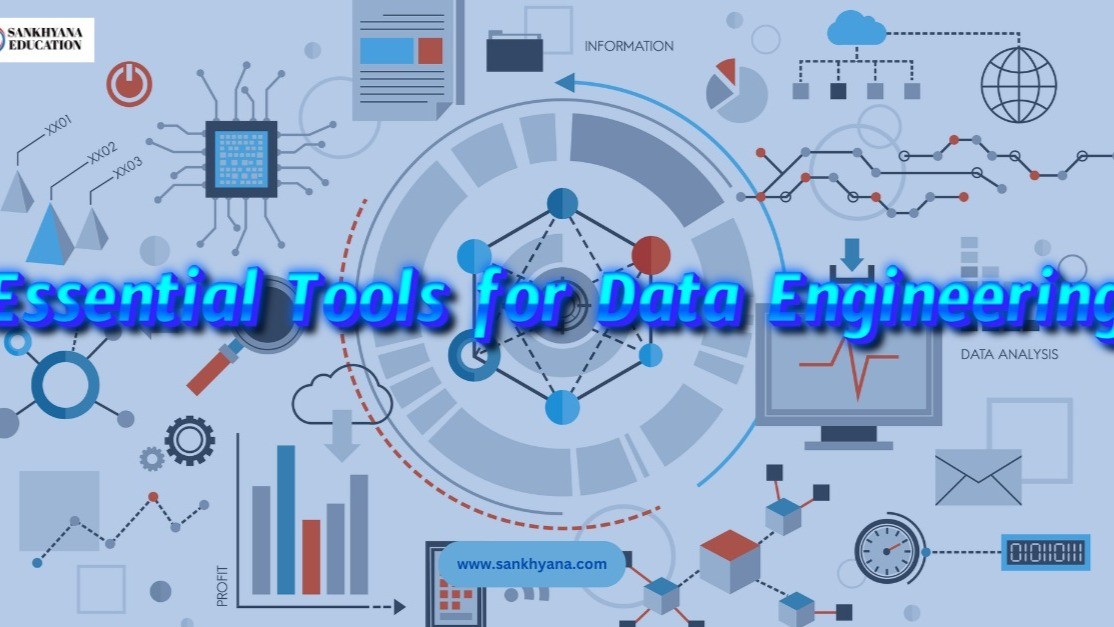
Essential Tools for Data Engineering
Sankhyana Consultancy Services-Kenya
Data Driven Decision Science (Training/Consulting/Analytics)
In the world of data engineering , tools and technologies are the cornerstone of building reliable, scalable, and efficient data pipelines. As data continues to grow in volume and complexity, businesses depend on modern data engineering tools to handle everything from ingestion and processing to storage and analysis. For aspiring data engineers and seasoned professionals alike, knowing the right tools is key to developing robust systems.
?
In this article, we will dive into some of the most essential tools in data engineering that are shaping the landscape of big data.
?
?
?1. Apache Hadoop
Apache Hadoop is one of the foundational technologies in the world of big data. It’s an open-source framework designed for distributed storage and processing of large data sets across clusters of computers. Its main components include:
?
- HDFS (Hadoop Distributed File System): Manages the distributed storage of large datasets.
- MapReduce: A programming model for processing large datasets with a parallel, distributed algorithm.
- YARN: Manages resources in the Hadoop cluster.
?
Hadoop is used in scenarios where you need to process vast amounts of data across multiple servers, making it ideal for big data environments.
?
?2. Apache Spark
Apache Spark is a powerful open-source unified analytics engine designed for large-scale data processing. What sets Spark apart is its speed—it can process data in-memory, which is faster than traditional disk-based systems like Hadoop’s MapReduce. Spark supports a wide range of tasks, including batch processing, real-time stream processing, machine learning, and interactive queries.
?
Key features of Apache Spark:
- In-memory computation: Increases the speed of processing data.
- Versatility: Supports various languages such as Python, Scala, and Java.
- Extensibility: Provides built-in libraries for machine learning (MLlib), SQL (Spark SQL), and stream processing (Spark Streaming).
?
?3. Apache Kafka
Apache Kafka is a distributed event streaming platform primarily used for building real-time data pipelines and streaming applications. It allows you to publish, subscribe to, store, and process streams of records in real-time. Kafka is highly scalable, fault-tolerant, and plays a key role in data engineering for managing real-time data feeds.
?
Key use cases of Kafka include:
- Real-time analytics: Streaming live data to data lakes or analytics systems.
- Data integration: Syncing data across distributed systems.
- Event-driven architecture: Ensuring efficient communication between microservices.
?4. Airflow
Apache Airflow is an open-source tool for automating, scheduling, and monitoring workflows. It helps data engineers orchestrate complex data pipelines. By defining tasks and their dependencies as directed acyclic graphs (DAGs), Airflow makes it easier to manage workflows, track progress, and handle data pipeline failures.
?
Key features:
- DAG-based workflow management: Organize tasks into sequential workflows.
- Extensibility: Supports integrations with cloud platforms (AWS, GCP) and various databases.
- Monitoring and logging: Provides real-time monitoring of workflow execution.
领英推荐
?5. ETL Tools: Talend and Apache NiFi
ETL (Extract, Transform, Load) tools are essential for transferring data from various sources into a centralized data warehouse.
?
- Talend: A popular open-source ETL tool that simplifies the process of connecting to different data sources, transforming data, and loading it into data warehouses or databases.
?
- Apache NiFi: A robust tool designed to automate the flow of data between systems. NiFi allows you to build data pipelines that collect, route, and transform data with a user-friendly interface and real-time analytics capabilities.
?6. SQL Databases: MySQL and PostgreSQL
Traditional SQL databases are still widely used in data engineering to store and query structured data.
?
- MySQL: A well-established open-source relational database that provides a scalable and reliable solution for handling structured data.
?
- PostgreSQL: Known for its advanced features and flexibility, PostgreSQL supports complex queries, full-text search, and high scalability, making it a favorite among data engineers working with structured datasets.
?7. Cloud Data Platforms: AWS, Google Cloud, and Azure
Cloud platforms have become increasingly important for data engineering due to their flexibility, scalability, and ability to handle large amounts of data efficiently. Key cloud services include:
?
- Amazon Web Services (AWS): Offers services like Amazon Redshift for data warehousing, S3 for storage, and EMR for big data processing.
?
- Google Cloud: Provides BigQuery for serverless data analytics, Cloud Storage for scalable storage, and Dataflow for stream and batch processing.
?
- Microsoft Azure: Features Azure Synapse Analytics for data warehousing and analytics, Blob Storage for data storage, and Azure Data Factory for ETL.
?8. Data Warehousing Tools: Snowflake and BigQuery
Data warehousing tools are essential for storing and analyzing large datasets.
?
- Snowflake: A cloud-based data warehousing platform that separates storage and compute, offering scalability and performance with minimal configuration.
?
- Google BigQuery: A fully-managed, serverless data warehouse from Google Cloud designed for large-scale analytics, enabling real-time insights with powerful querying capabilities.
?9. Docker and Kubernetes
Docker and Kubernetes are essential for managing the deployment and scalability of applications in a containerized environment. For data engineering, these tools are often used to ensure consistent environments across different systems and to orchestrate distributed systems.
- Docker: Enables the creation of lightweight containers that package data engineering applications and their dependencies.
?
- Kubernetes: Automates the deployment, scaling, and management of containerized applications, which is useful for managing large-scale data engineering infrastructures.
?Conclusion
?
Data engineering is a diverse and rapidly evolving field, and mastering the right tools is key to success . From big data processing with Hadoop and Spark to real-time event streaming with Kafka, workflow management with Airflow, and cloud platforms like AWS and Google Cloud, these tools empower data engineers to build scalable, efficient data systems.
?
Whether you’re starting out or looking to enhance your skills, familiarizing yourself with these essential tools will equip you to tackle the challenges of big data and data infrastructure in modern organizations.